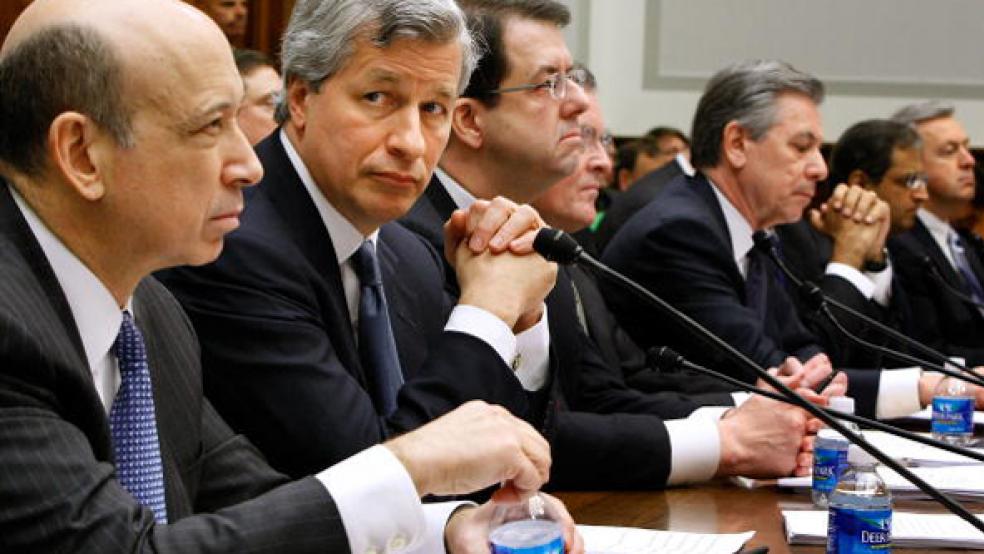CEOs of the largest banks in the country can breathe a little easier this morning, as regulators prepare to vote on the so-called Volcker Rule, the element of the Dodd-Frank financial reform law that is meant to prevent banks from engaging in risky securities trading.
One question surrounding the release of the rule, which runs to 70 pages of text with another 850 pages of commentary, was the level of personal responsibility a bank’s CEO would bear if his or her institution is found to have violated the rules.
If, as expected, the rule is approved by the five major financial services regulatory agencies, CEOs would have to sign an annual “attestation” that they have reviewed the bank’s policies and procedures and that the bank has made a good faith effort to put procedures in place to assure compliance.
This is a lower bar than some had predicted, meaning that unless the CEO of a bank can be shown to have deliberately misled regulators about the institution’s compliance efforts, a violation of the rules will not be treated as an offense committed directly by the CEO.
The text of the rule requires that: “Based on a review by the CEO of the banking entity, the CEO of the banking entity must, annually, attest in writing…that the banking entity has in place processes to establish, maintain, enforce, review, test and modify the compliance program… in a manner reasonably designed to achieve compliance.”
In a speech in Washington last week, Treasury Secretary Jack Lew had raised expectations about the level of CEO liability by noting that the final rule would “[put] in place strong compliance requirements that require those in charge of financial institutions to make sure that the 'tone at the top' sends the right signal to the whole firm."
Sources told the Wall Street Journal that CEOs would be required to “guarantee” compliance with the rule – a standard that appeared to imply the assumption of personal liability -- but documents released this morning indicate that the standard falls well short of such a requirement.
Other elements of the new rule appear to track expectations of how it will limit banks from engaging in proprietary trading.
Among other things, banks will be generally barred from proprietary trading – meaning that they cannot buy and sell securities for the express purpose of making money from them. However, the rule allows multiple exceptions meant to allow banks to continue performing their traditional functions in the marketplace.
Subject to strict compliance standards, banks will be allowed to buy and sell securities for the purpose of “making a market” in a stock, with its trading desk’s inventory, “designed not to exceed, on an ongoing basis, the reasonably expected near-term demands of customers.”
Subject to similar restrictions, banks will also be able to underwrite securities offerings, trade in government-issued securities, and make limited investments in hedge funds and other vehicles.
The rule would set sharp restrictions on when a bank can buy securities as a “risk mitigating” hedge. The bank must demonstrate that any such investments is “designed to reduce, and demonstrably reduces or significantly mitigates, specific, identifiable risks of individual or aggregated positions of the banking entity.”
This specific rule is meant to prevent a repeat of J.P. Morgan Chase’s disastrous “London Whale” scandal, in which proprietary trading activities camouflaged as risk mitigation investments cost the bank more than $6 billion
Follow Rob Garver on Twitter @rrgarver





